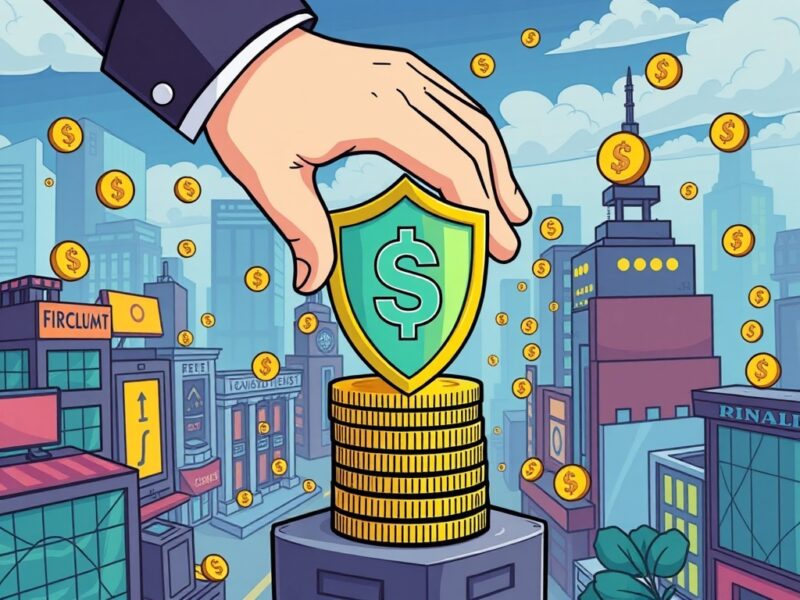In brief
- A judge ordered that $57.6 million in USDC associated with the Libra meme coin scandal be unfrozen.
- It follows the February launch of the Libra meme coin, which was promoted by Argentine President Javier Milei and crashed and burned within a matter of hours.
- The judge added that she is “skeptical” that the plaintiffs will succeed in their case against Hayden Davis and Ben Chow.
Assets associated with the infamous Libra token—launched in February, and promoted by Argentine President Javier Milei—were unfrozen by a Manhattan federal judge on Tuesday. The judge said that she no longer believes that the defendants would run off with the cash, after the pair had been compliant with court proceedings.
It comes after the same U.S. district judge, Jennifer L. Rochon, froze $57.6 million worth of USDC found in June as part of a case in which the plaintiffs are seeking over $100 million in damages. The frozen assets were in two wallets controlled by defendants Hayden Davis, CEO of venture capital firm Kelsier Labs LLC, and Ben Chow, founder of decentralized exchange Meteora.
On Tuesday, Judge Rochon stated that the pair were not conducting themselves as “evasive actors,” due to their compliance with the legal proceedings thus far.
“It is plain that money damages would be available to compensate the putative class,” Judge Rochon said, according to Law360. “Plaintiffs have not made a sufficient showing of irreparable harm.”
As such, she decided to lift the freeze requirement on the $57.6 million worth of USDC on Tuesday. These assets haven’t moved from the originally frozen wallets, which are still holding $13.06 million and $44.59 million respectively.
In doing so, the judge added that she is “skeptical” about the likelihood of the plaintiffs, represented by Burwick Law, succeeding in their case. Although she added, the case is still in an early phase.
“This ruling affirms what we have said all along—this case is meritless,” lead counsel for Davis, Mazin Sbaiti, founding partner of Sbaiti & Company PLLC, said in a statement shared with Decrypt. “Despite the opportunity to put in all of their evidence, [there was] no evidence that our client did anything wrong or caused losses. Today’s hearing and decision reveal the case for what it is.”
The plaintiffs allege that Davis and Chow misled investors with the promotion of Solana meme coin Libra (LIBRA), using the social media post from President Milei as a way to give the token an air of legitimacy.
Chow’s lawyer, Samson Enzer of Cahill Gordon & Reindel LLP, told Law360 that the plaintiffs’ claims are “untested and meritless,” and that “we look forward to briefing our upcoming motion asking the court to dismiss this lawsuit.”
Burwick Law did not immediately respond to Decrypt’s request for comment.
The legal battle is part of the fallout of the LIBRA token, which hit a $1.17 billion market capitalization before crashing down 97% to $33 million within 24 hours, according to DEX Screener.
Upon launch, LIBRA was promoted by Argentine President Javier Milei as a funding tool for small businesses in the South American country.
In reading this, many traders believed that it was the official token of the country. While that may sound outlandish, it’s worth bearing in mind that the Central African Republic launched a national meme coin that same week—and the President of the United States had created his own official meme coin the month prior, just days before his inauguration.
However, Libra wasn’t the official token of Argentina, as allegations of insider trading started to circulate and Milei deleted his post—prompting the token to crash and burn.
As everything started to fall apart, Davis went on a media campaign in an attempt to explain what had happened. He soon became the face of the Libra scandal, with many investors blaming him for the collapse. Davis claimed that he was President Milei’s advisor and that his role with Libra was to act as a custodian of the associated funds—which left him holding a $100 million bag.
It was later revealed that Chow of Meteora had referred a “handful” of projects to Davis’ Kelsier Labs, including First Lady Melania Trump’s official meme coin. Meteora’s infrastructure was also used to launch Libra. Furthermore, on-chain analytics company Bubblemaps found connected wallets between the Melania and Libra token launches.
The fiasco led to Chow’s resignation from Meteora as his pseudonymous co-founder, Meow, said he showed a “lack of judgement” in trusting Davis.
Now, six months later, Chow and Davis have gone one step forward in clearing their names.
Daily Debrief Newsletter
Start every day with the top news stories right now, plus original features, a podcast, videos and more.
Source: https://decrypt.co/336060/libra-promoters-regain-access-57-6-million-crypto-judge-unfreezes-assets


